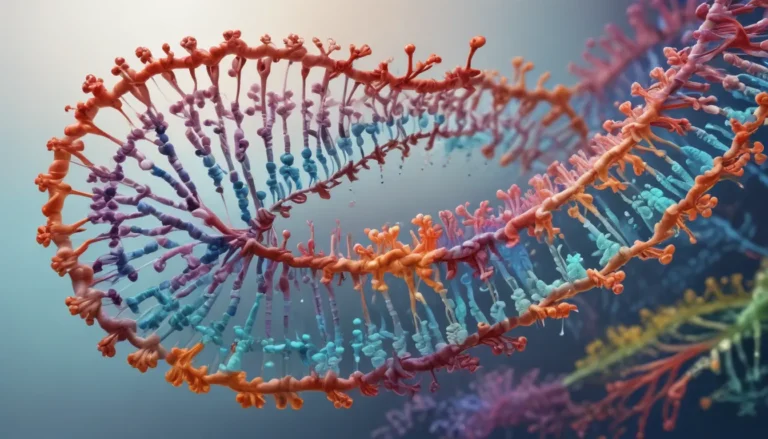A Note About Images: The images used in our articles are for illustration purposes only and may not exactly match the content. They are meant to engage readers, but the text should be relied upon for accurate information.
The immune response is a fascinating and critical system that acts as our body’s shield against harmful pathogens and invaders. It consists of a complex network of cells, tissues, and organs working together to safeguard our health. Understanding the immune response is not only essential for medical professionals and researchers but also for the general public to take better care of their immune systems.
Key Takeaways:
- The immune response is a powerful defense mechanism that protects our bodies by recognizing, targeting, and eliminating pathogens while also remembering previous encounters for faster and stronger future responses.
- Maintaining a healthy lifestyle, getting vaccinated, and understanding genetic influences can strengthen our immune response, while factors like stress and aging can weaken it.
Exploring the Immune Response:
The human immune system is a remarkable network comprising specialized cells, tissues, and organs that defend against harmful pathogens like bacteria, viruses, and parasites.
One astonishing capability of the immune response is its ability to distinguish between the body’s own cells and foreign invaders, ensuring healthy cells remain untouched while pathogens are targeted and eliminated.
The immune system consists of two main branches: the innate immune response, providing immediate defense against pathogens, and the adaptive immune response, offering long-term immunity against specific pathogens through immunological memory.
Antagonists and Allies of the Immune Response:
Antibodies, also known as immunoglobulins, are proteins produced by B cells that target specific antigens on pathogens for destruction by other immune components.
T cells, a type of white blood cell, play a crucial role in cell-mediated immunity, identifying and destroying infected cells while coordinating the immune response.
Dynamic Nature of the Immune System:
The immune system constantly evolves and adapts to factors like age, environment, and pathogen evolution, ensuring it remains effective in combating new threats.
Inflammation, a protective immune response, recruits immune cells to sites of infection or injury to promote healing and eliminate pathogens.
Challenges Faced by the Immune Response:
Autoimmune diseases occur when the immune system mistakenly attacks the body’s own cells and tissues, leading to conditions like rheumatoid arthritis, lupus, and multiple sclerosis.
Allergies result from hypersensitive immune responses to harmless substances, causing symptoms like sneezing, itching, and difficulty breathing.
Enhancing Immune Response:
Immunizations stimulate the immune system to develop protective responses against specific pathogens, priming it for future encounters.
Maintaining a healthy lifestyle through exercise, balanced nutrition, sufficient sleep, and stress management supports optimal immune function.
Immune Response Across Life Stages:
The placenta acts as a temporary immune shield for developing fetuses, protecting them from maternal immune responses.
Genetic factors influence immune response, affecting immune cell function, susceptibility to infections, and autoimmune disorder development.
As individuals age, their immune response weakens due to changes in immunosenescence, making them more vulnerable to infections and less responsive to vaccines.
Breast milk contains immune-boosting properties that protect newborns against infections and enhance their immune response.
The Journey Continues:
While we’ve uncovered fascinating facts about the immune response, there’s more to explore! Dive into adaptive immunity, plant immunity, and innate immunity to unravel the secrets of these intriguing systems.
Conclusion:
The immune response is a crucial element of our body’s defense mechanism, protecting us from pathogens and maintaining our health. Understanding this system not only sheds light on how our bodies combat infections but also highlights its complexity and effectiveness.
By caring for our immune health with a balanced lifestyle, we can support optimal immune function and overall well-being. Remember the extraordinary immune response within you, tirelessly working to keep you healthy and protected.
FAQs:
-
What is the immune response?
The immune response is the body’s defense against harmful pathogens and foreign substances that cause diseases. -
How does the immune system recognize invaders?
Specialized cells called lymphocytes identify specific antigens on pathogens to recognize foreign invaders. -
What are T cells and B cells?
T cells eliminate infected cells directly, while B cells produce antibodies to neutralize pathogens. -
Can the immune system attack our own body?
Sometimes, the immune system mistakenly attacks healthy cells, leading to autoimmune disorders. -
How can I support my immune system?
Maintaining a healthy lifestyle with exercise, nutrition, sleep, and stress management can optimize immune function.
Trust in our dedication to delivering accurate and engaging content as you explore the wonders of immune response with us.






